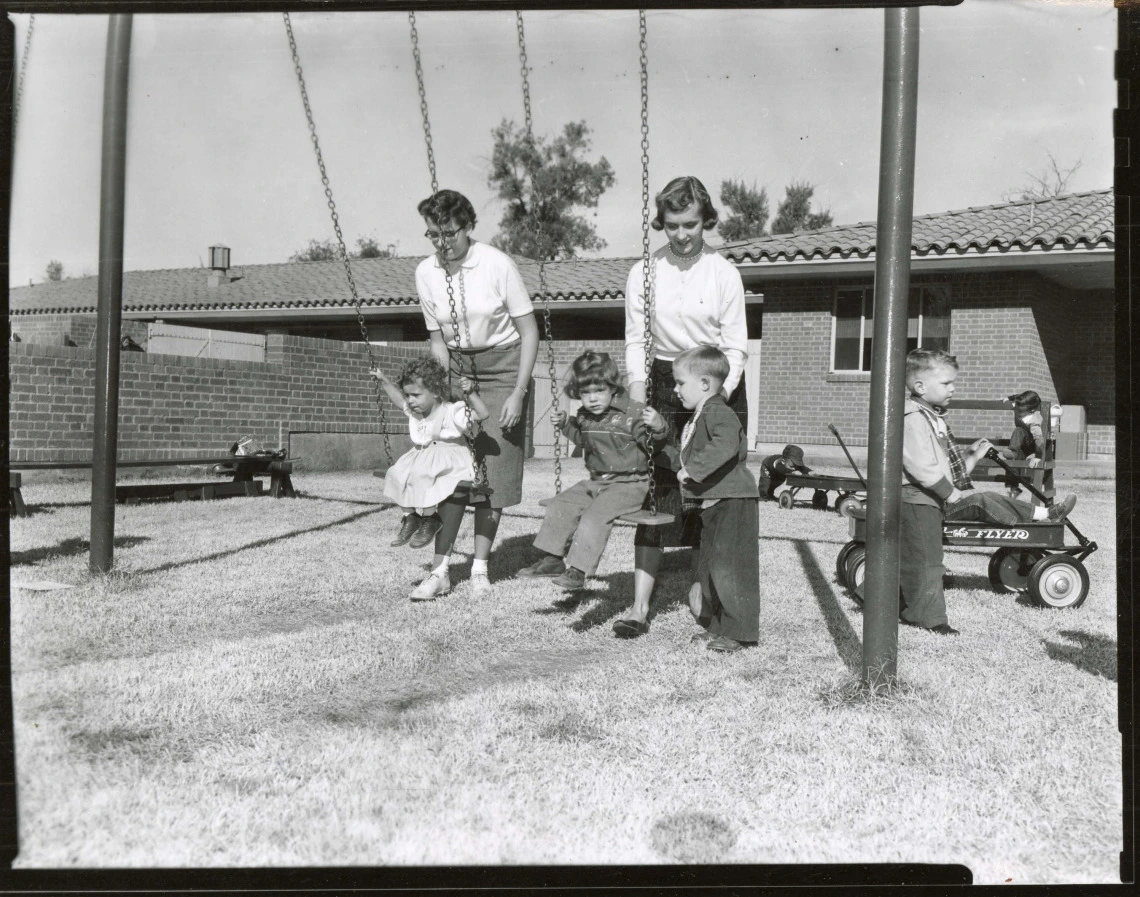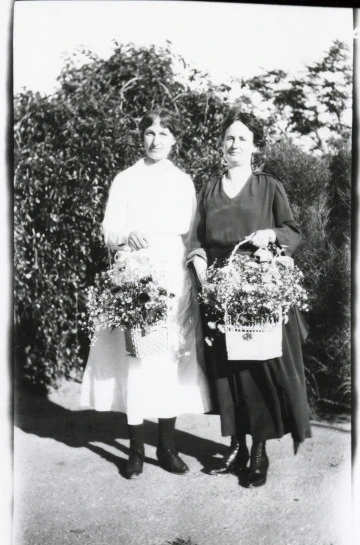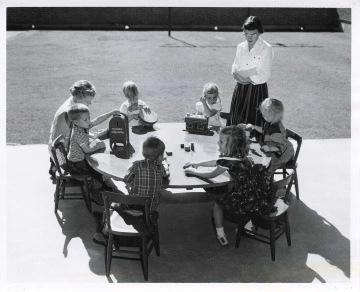Our Roots Run Deep: From Home Economics to Human Ecology
Since 1898, the programs housed in the Norton School have prepared graduates for careers that translate the latest advances in social sciences, financial wellness, merchandising, and consumer studies to serve the evolving needs of families.

Throughout its history, the Norton School has adapted to meet the ever-changing challenges families face. While many of the programs within the school have evolved with the times, its overall focus and mission remain — to provide high-quality instruction and research, as well as extension and outreach activities, that strengthen families, communities and the marketplace, Scaramella explained.
“Each of our four academic disciplines – Family Studies and Human Development; Personal and Family Financial Planning; Retailing and Consumer Sciences; and Fashion Industry’s Science and Technology – are firmly grounded in the origins of Home Economics,” Scaramella said. “Home Economics has a long and rich history because the discipline has remained focused on using science to improve the quality of life for individuals and families.”
The history of home economics in the United States is in many ways the story of women’s education. The Morrill Act of 1862 established land-grant institutions of higher education in each state, designed to educate American working classes in the practical application of the sciences and liberal arts, which also afforded women the opportunity for educational advancement.
Women who attended university were encouraged to pursue degrees that applied science to improving the quality of life in the home. Domestic science, the earliest iteration of what was to become home economics, was the application of scientific theories and practices to modernize caretaking, sanitation, food preparation, cleaning and sewing.
“Domestic science and home economics grew from the business of managing the farm and was designed to attend to the issues families in rural communities faced,” Scaramella said. “It really had to do with issues surrounding the home financial economy and improving the quality of family life.”

The University of Arizona offered its first courses in domestic science in 1898. Initially the curricula was meant to supplement the education that female students were pursuing in other disciplines. Even women who sought a profession outside of the home were expected to manage a household, and the Progressive Era had great expectations of American homemakers. Advances in chemistry, medicine, and a better understanding of the spread of infectious disease —“germ theory”— all could have an impact on the standard of life, beginning in the home.
The University of Arizona Cooperative Extension was established when the Smith-Lever Act (1914) formalizing the role that land-grant universities were already playing in the dissemination of knowledge. Home economics extension agents led programs in nutrition and health, menu planning, millinery, home improvement and efficient design of homes. Childcare was also a concern.
Demand for home economics extension programs expanded during the years following World War I. Modern gas or electric appliances promised more leisure time and an opportunity to pursue community work, education, and even paid employment, but they frequently left homemakers in need of the demonstrations and practical guidance that could make these labor-saving devices a good investment.
“Domestic skills evolved and home economics as discipline was truly science based. Our Department of Home Economics actually tested one of the first washing machines,” Scaramella said. “As we started developing washing machines and other time-saving technologies, women could then concentrate on improving the quality of family life.”
By 1922, a bachelor’s degree in one of the home economics disciplines had been awarded to 23 university graduates. In addition to work within the home, many graduates found employment in the food and textiles industries, interior design, and restaurant or hotel management. They often pursued careers in government agencies or nonprofit organizations, working in such fields as social work, education, public health and housing reform.
During the 1930s, the university’s home economics extension agents played a key role in helping Americans face the challenges of the Great Depression. Popular programs offered throughout Arizona hint at the importance of savings generated through efficient, rational decision-making within the home: food preservation, home gardening, home poultry production, home nursing, furniture refinishing and sewing clothes from gunny or flour sacks.
These Depression-era programs became critical to the World War II defense effort as rationing and scarcity made resource conservation a necessity. Becoming a savvy consumer was no longer just a benefit to the household budget – it was patriotic. Hundreds of thousands of women were taking on war jobs, and Americans needed daycare systems quickly. The university’s home economics curriculum was adapted to meet these urgent needs as well as to incorporate the latest advances in nutrition and health and a growing interest in child development.
These emphases shifted in the 1960s as more women sought employment outside the home and pursued a college education in such fields as childcare, nutrition and dietetics, and family relations. Americans had more disposable income than ever before, and new home economics courses and extension programs were concentrated in consumer issues and advocacy, product labeling, personal credit and home business management.

The School of Home Economics was transformed in 1978 when faculty in food, human nutrition and dietetics joined with the faculty in agricultural biochemistry to become the Department of Nutrition and Food Science—today, the School of Nutritional Sciences and Wellness. This allowed the home economics faculty to streamline their mission and center their programs on child development and family relations, clothing, textiles, and consumer studies.
In 2004, the school was renamed in honor of John and Doris Norton, leading Arizona agricultural producers and livestock growers who worked with the Norton School over the years to support programs in direct marketing for the retail food industry.
Today, the Norton School of Human Ecology’s retailing and consumer sciences undergraduate degree is considered one of the top retail business programs in the country. Its newest degree — Fashion Industry’s Science and Technology — underscores art innovation, science, technology, design and business to prepare graduates to be pioneering leaders in the global fashion market. Together with programs in family studies and human development, as well as personal and family financial planning, the school has nearly 1,000 undergraduates and offers a graduate program in family studies and human development.
The Norton School is also home to three multidisciplinary research, outreach, and corporate engagement entities: the Frances McClelland Institute for Children, Youth, and Families; the Terry J. Lundgren Center for Retailing; and the Take Charge America Institute for Consumer Financial Education and Research.

